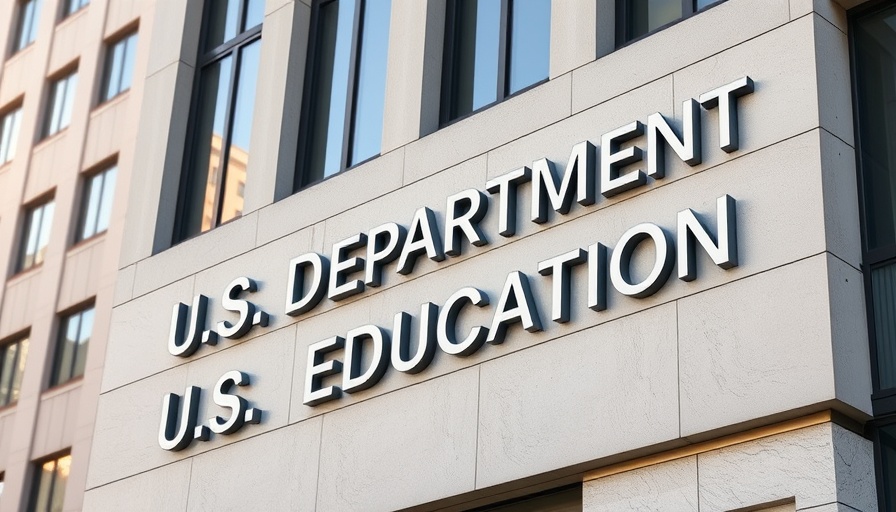
Supreme Court Decision: A Turning Point for Education in Michigan
In recent news that could reshape the educational landscape in the United States, the Supreme Court ruling on the fate of the Department of Education has garnered immense attention. The court's decision to permit the restructuring of this federal agency has raised critical questions about the future of education policy in Michigan and particularly how it will affect its vulnerable populations. As President Trump moves forward with his commitment to dismantle the Department of Education, voices from various sectors are beginning to emerge, advocating for a reconsideration of this drastic move.
In SCOTUS ruling in fate of the Education Department, the discussion dives into the implications of restructuring the educational framework, highlighting key insights that necessitate further analysis on our end.
What's at Stake for Michigan’s Students?
The implications of the Supreme Court's ruling extend beyond bureaucratic changes; they represent a significant shift towards decentralization of educational governance. Education Secretary Linda McMahon's promise to transfer responsibilities of the Department to states signals a pivotal change in how education is delivered and funded. Michigan, with its diverse educational needs, stands to be significantly affected. Advocates worry that this decentralization may lead to fragmentation, particularly impacting low-income and disabled students who rely on federal protection of civil rights in education.
Voices of Concern: Who Will Protect Our Most Vulnerable?
Groups such as the Methodist Children’s Home Society of Michigan are raising alarms about how vulnerable children will be treated under this new system. As Kevin Roach from the organization points out, there has been a long-term effort to protect the interests of these individuals. Advocates believe that without a cohesive federal presence in education, resources and support for these children may dwindle, exacerbating existing inequalities. President Trump’s plans to shift focus to local governance raises further concerns about the ability of states to maintain equal access and support to education resources.
A Closer Look at the Challenges Ahead
It is essential to recognize that while returning power to the states might seem beneficial, it also comes with a number of risks. Without a federal framework to ensure accountability in educational services, states may struggle to provide adequate support. Professor Dave Giulio from Oakland University articulates this concern by explaining that, while the idea of localized control has surface-level appeal, it is crucial to reflect on the complexities involved in execution. What works in one district could fail miserably in another, creating a patchwork of educational quality across the state.
Economic Realities: Education Funding and Budget Concerns
Coinciding with the Supreme Court's ruling, President Trump signed a budget bill that has raised eyebrows among educators and advocates alike. While the administration touts cuts to Medicaid and increased educational autonomy, such moves may inadvertently squeeze resources essential for leading quality educational initiatives. Higher costs of living and increased consumer prices, now affecting everything from groceries to gas, threaten funding sources that local schools count on. With inflation affecting budgets, smaller districts may find themselves under-equipped to meet their challenges, further threatening equitable educational opportunities.
Charting a Course: What Lies Ahead?
Looking ahead, the path forward for education in Michigan necessitates vigilance and advocacy. The fallout from this landmark ruling invites a renewed call to action for community engagement and grassroots advocacy. Parents, educators, and community members must come together to ensure that quality education remains accessible for all, particularly for those who are often left behind during systemic transformations.
As the dust settles on this important ruling, it remains vital for Michigan residents to stay informed and active in discussions surrounding educational reforms. With the livelihoods of many dependent on the outcomes of these changes, now more than ever, community input will play a crucial role in the policies that shape Michigan’s future.
Call to Action: Get Involved
As Michiganders, it is crucial to engage in local school board meetings and community discussions regarding education policies. Your voice matters in shaping the future of our children's education. Stay informed about Michigan government updates and advocate for equitable education resources for all children!
 Add Row
Add Row  Add
Add 



Write A Comment